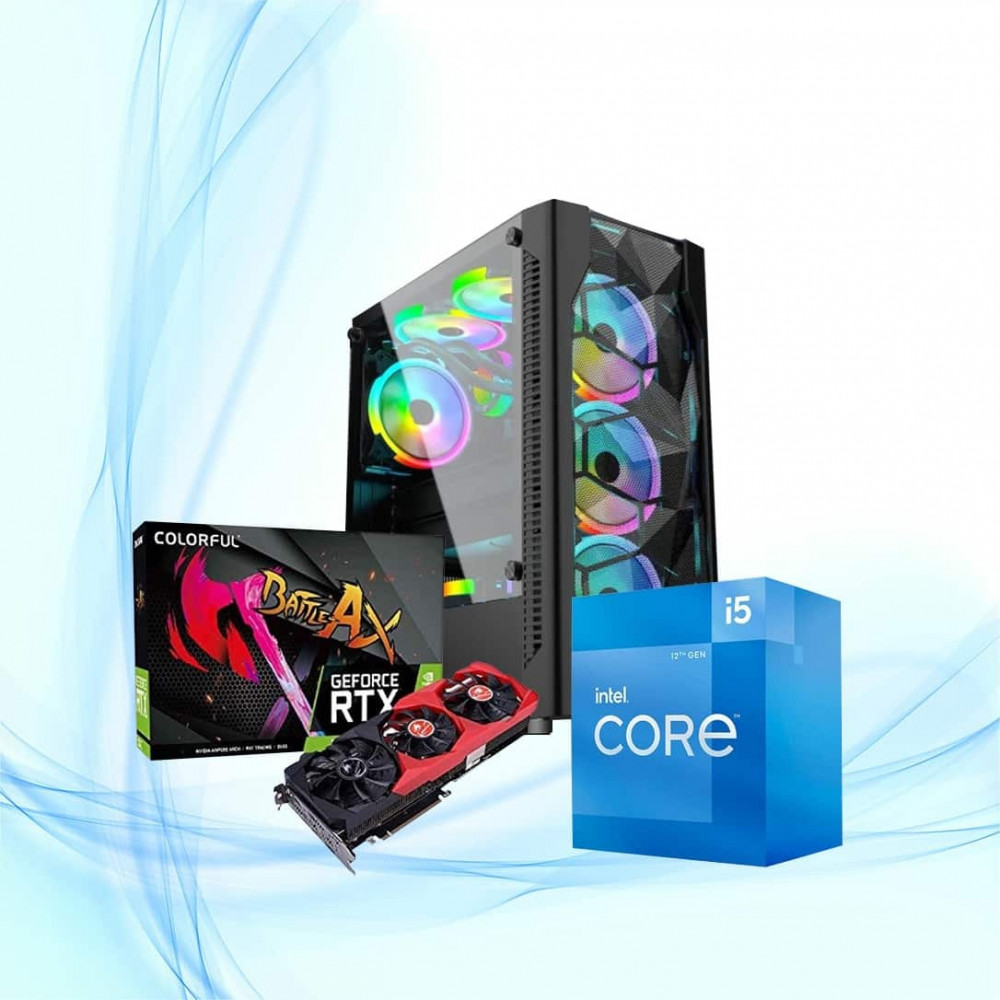Learn with us about the most important PC parts
- A personal computer (PC) is a complex device made up of many different parts that work together to operate the computer and produce desired results.
- Although these parts are of high quality and offer advanced capabilities, they periodically require repair or replacement when damaged or worn out. In this article, we'll discuss the most important parts of a personal computer.
The most important parts of a personal computer and explain what you need to know about PC parts.
1- Central Processing Unit (CPU):
The central processing unit (CPU) is the brain of the computer, controlling the operation of various programs and processes. If the CPU malfunctions, the computer will stop working completely. It's important to ensure the CPU is properly installed and its cooling fan is cleaned periodically to keep the computer running properly.
2- Graphics Processing Unit (GPU):
The graphics processing unit (GPU) is responsible for running images, graphics, and games. If the GPU malfunctions, the computer will stop displaying images properly. The GPU must be properly installed and its cooling fan cleaned periodically.
3- Random Access Memory (RAM):
Random Access Memory (RAM) is responsible for storing temporary data that your computer needs while running programs and applications. If RAM is insufficient, your computer's performance will be affected and may even stop working. It's essential to update RAM periodically to improve your computer's performance.
4- Data storage unit:
Data storage includes the hard disk drive (HDD) and the solid-state drive (SSD). The data storage device is responsible for storing and preserving all data and files on the computer. If the data storage device fails, the computer will lose all files and data stored on it. Important files and data should be stored on more than one data storage device and backed up periodically.
5- Motherboard:
The motherboard is the core component of a computer and connects all of its various parts. If the motherboard fails, the computer will stop working completely. Ensure the motherboard is properly installed and cleaned regularly.
6- Power Supply Unit:
The power supply is responsible for providing the power needed to operate your computer. If the power supply fails, the computer will stop working completely. Make sure to choose a high-quality power supply and clean it regularly.
In addition to the components mentioned in the previous paragraph, there are some other components in the personal computer that can fail and need to be repaired or replaced, namely:
1- Sound Card:
The sound card is responsible for outputting sound from the computer, and if it fails, the user will not be able to hear the sound.
2- Network Card:
The network card is responsible for connecting to the Internet and other networks, and if it fails, the user will not be able to connect to the Internet or other networks.
3- Optical Drive:
The optical drive is responsible for reading CDs and DVDs, and if it malfunctions, the user will not be able to read these discs.
5- External Graphics Card:
An external graphics card is one that is installed on the motherboard to provide better graphics performance. If it fails, graphics performance will be significantly affected.
6- Fan:
The fan is responsible for cooling the computer and preventing it from overheating, which can damage other components. If the fan malfunctions, the computer will overheat and potentially damage other components.
- It's important to regularly check computer parts, perform necessary maintenance, and repair or replace them if necessary to maintain proper computer performance and avoid malfunctions and damage. Users should also ensure they purchase high-quality computer parts from trusted brands to ensure optimal performance and the highest quality.
Other computer parts can also fail and need to be repaired or replaced, including:
- Keyboard:
The keyboard is the primary input device for a computer, and if it malfunctions, the user will be unable to enter data or control the computer.
- Mouse:
The mouse is the primary control device for a computer, and if it malfunctions, the user will be unable to control the computer or perform various operations.
- Computer screen (Monitor):
The computer monitor is the primary display device for the computer, and if it malfunctions, the user will not be able to view images or graphics properly.
- Speakers:
Speakers are the main output device for sound on a computer, and if they fail, the user will not be able to hear the sound.
- Printer:
The printer is the main output device for printing, and if it breaks down, the user will not be able to print.
Regular maintenance of all computer components is essential, as are repairs. If necessary, damaged components should be replaced with new, high-quality ones. Users should also ensure proper maintenance of all computer components and enhance computer security by installing antivirus software and keeping the system and software updated regularly.

